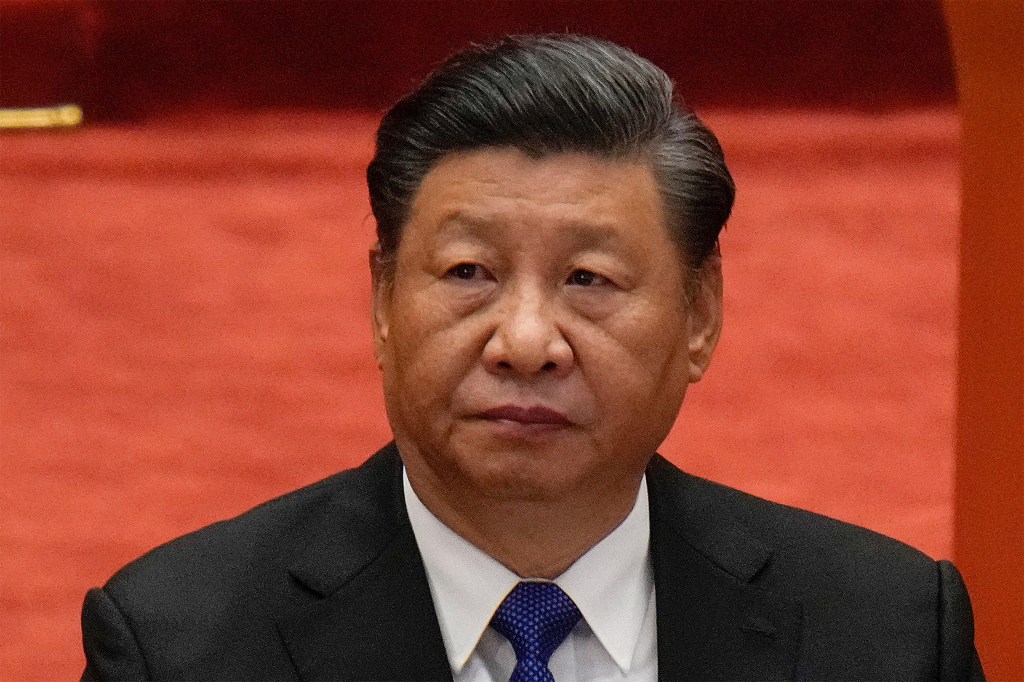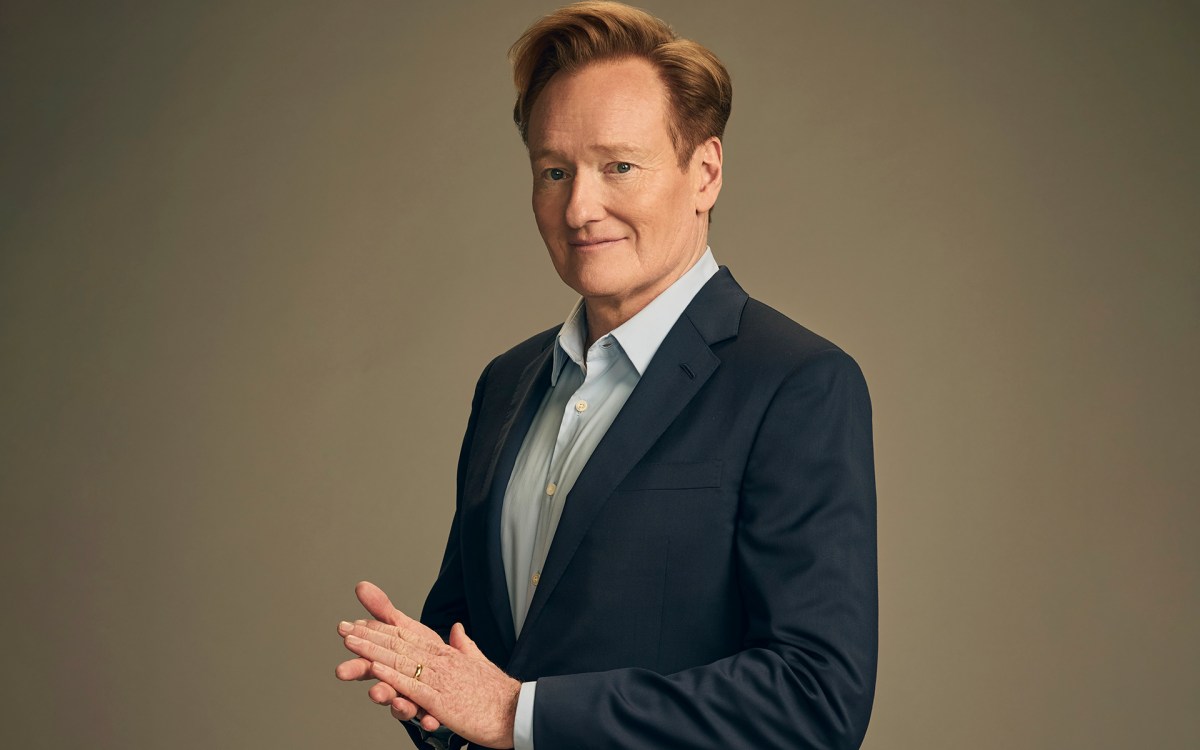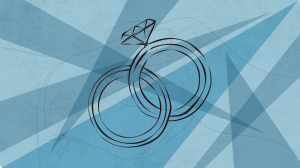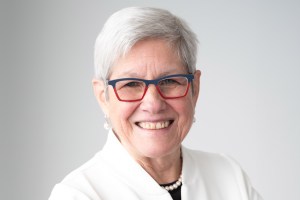Nation & World
-

‘Harvard Thinking’: Is marriage worth saving?
In podcast, experts dig into why wedlock’s appeal is fading — for one group especially — and how to make it work better
-

Is social media responsible for what happens to users?
Landmark suit to examine 1996 law, questions about mental health, other harms, role of website design
-

Updating Cold War-era Outer Space Treaty long overdue. But big hurdles loom.
Tech policy expert cites global divisiveness, urges creating annual conference like that for climate change to advance talks
-

How to end polarization? Schools may be best hope.
Journalist blends history, on-the-ground reporting, finds answer may be civic education that goes far beyond 3 branches of government
Part of the Excerpts series -

Crush your goals the Ohtani way
Baseball superstar’s method for acing ambitions can help anyone, says Business School professor
-

How academia can help America heal
First step, says columnist David Brooks, is to understand its role in the problem
-
At Div School, centuries-old Aztec language speaks to the present
An informal group of Harvard students study Nahuatl, the language of the Aztecs that has been spoken in central Mexico since the seventh century.
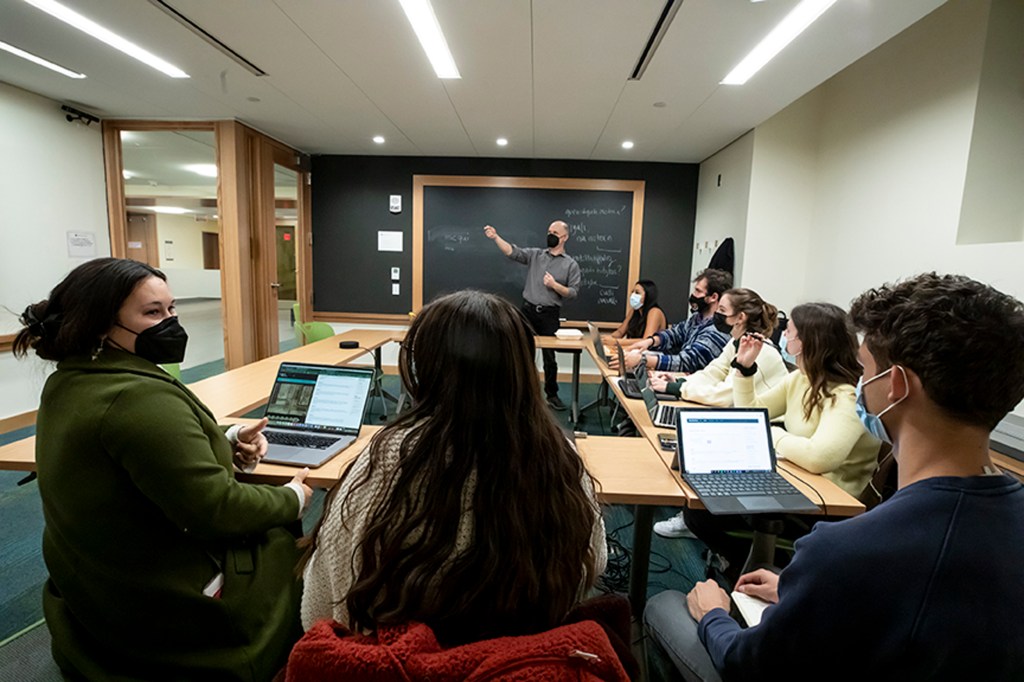
-
Raskin’s message to students: Don’t just stand there, change something
Speaking at the Kennedy School’s Institute of Politics, U.S. Rep. Jamie Raskin fielded questions about his legal and political education and his work on the select committee investigating the Jan. 6 riot at the U.S. Capitol.
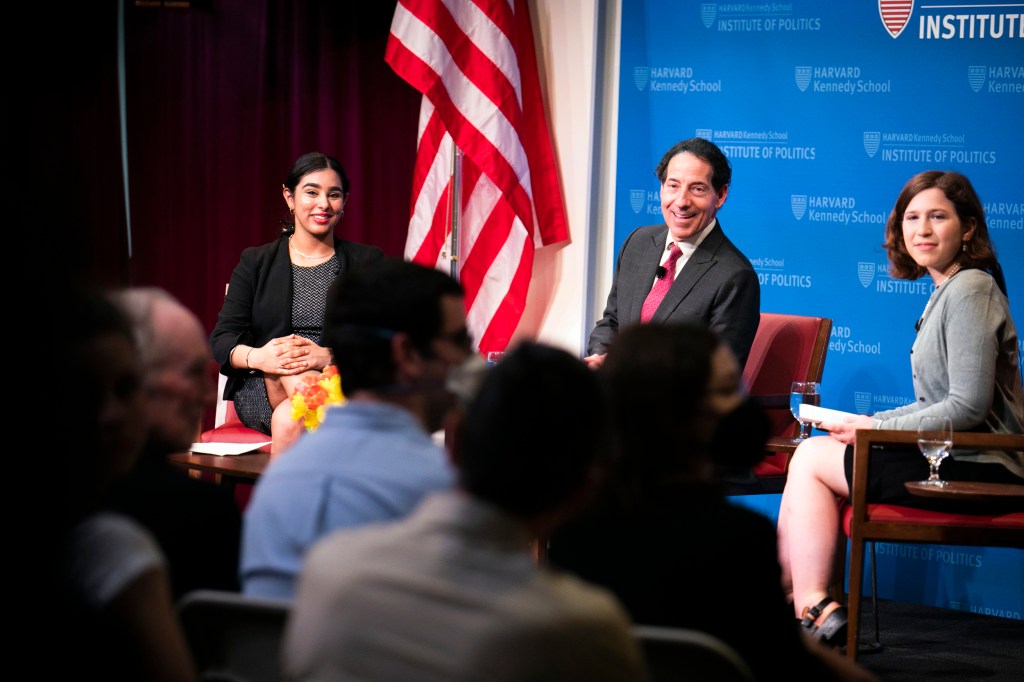
-
Would Russia have invaded if it wasn’t just one man making call? Possibly
Josh Kertzer looks at Russia’s decision to invade Ukraine and asks would it have happened if a group had made the call instead of just one man?
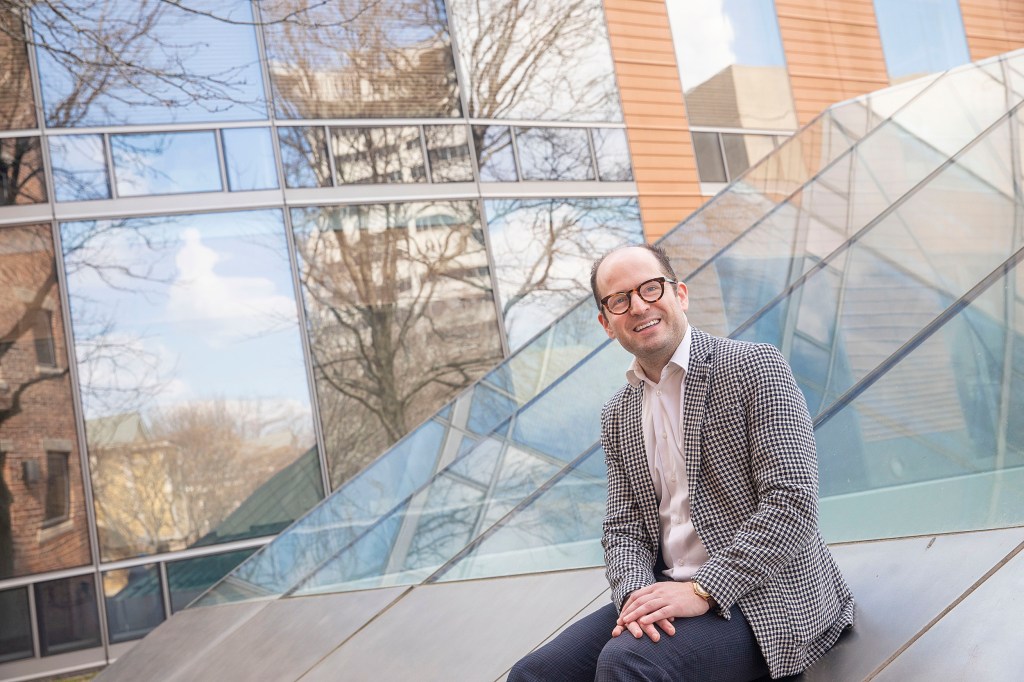
-
When disaster strikes, what you don’t know might kill you
In excerpt from new book on our age of disasters, Kennedy School lecturer Juliette Kayyem ’91, J.D. ’95, examines how we take wrong lessons from history.
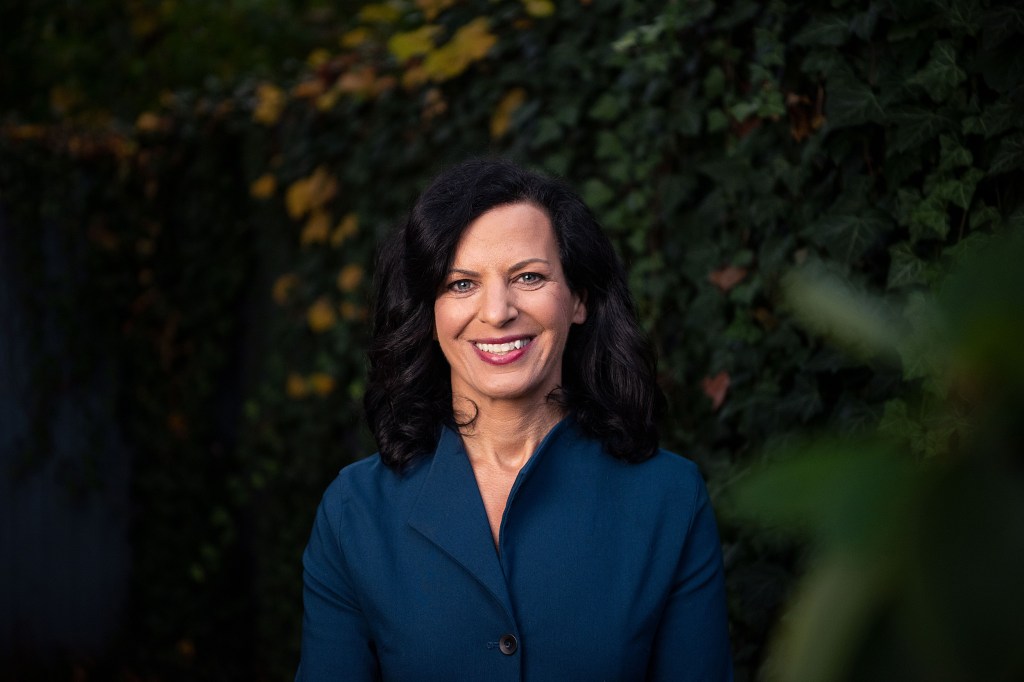
-
Long shadow of Stephen Breyer
Four of Justice Stephen Breyer’s former clerks discuss his service on the bench and how his departure will shape the court.
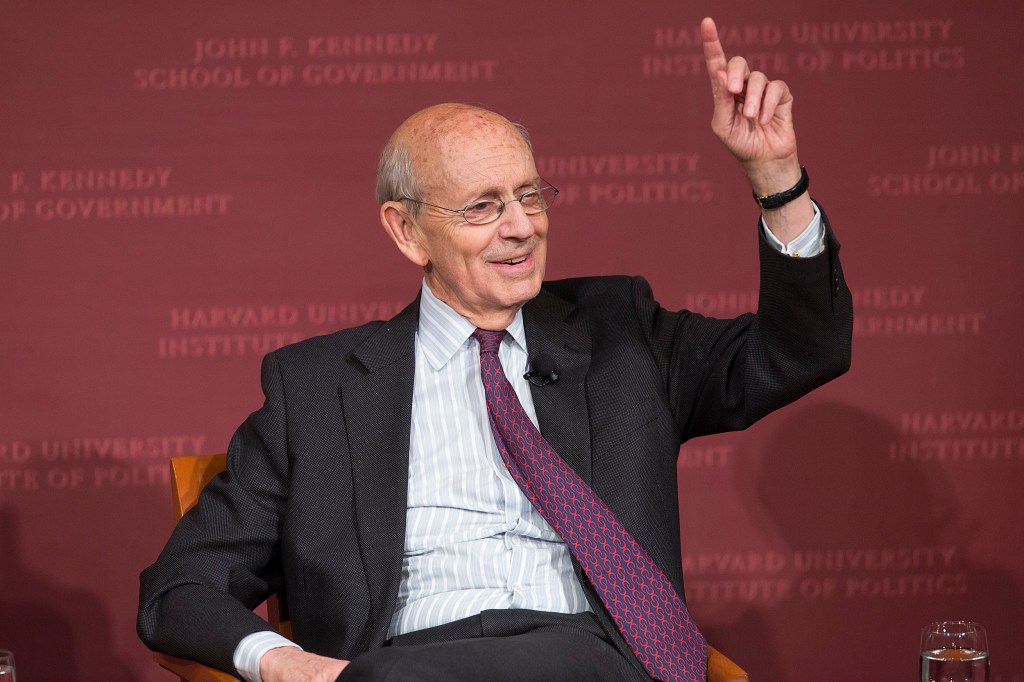
-
Viewing Ukraine’s war-torn health care through a personal lens
Ukrainian American physicians from Harvard Medical School and affiliated hospitals gathered virtually Tuesday to share experiences with the war.
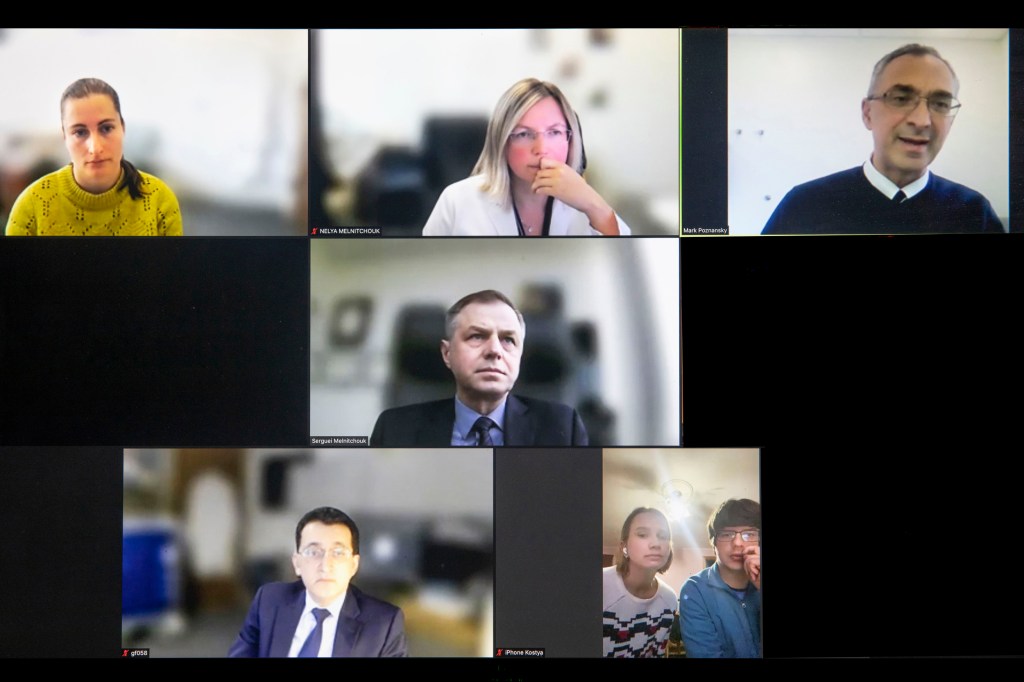
-
Weatherhead fellow aims to pair social justice, sports
Ex-pro soccer player Justin Morrow, founder of Black Players for Change, focuses on raising diversity in leadership roles.
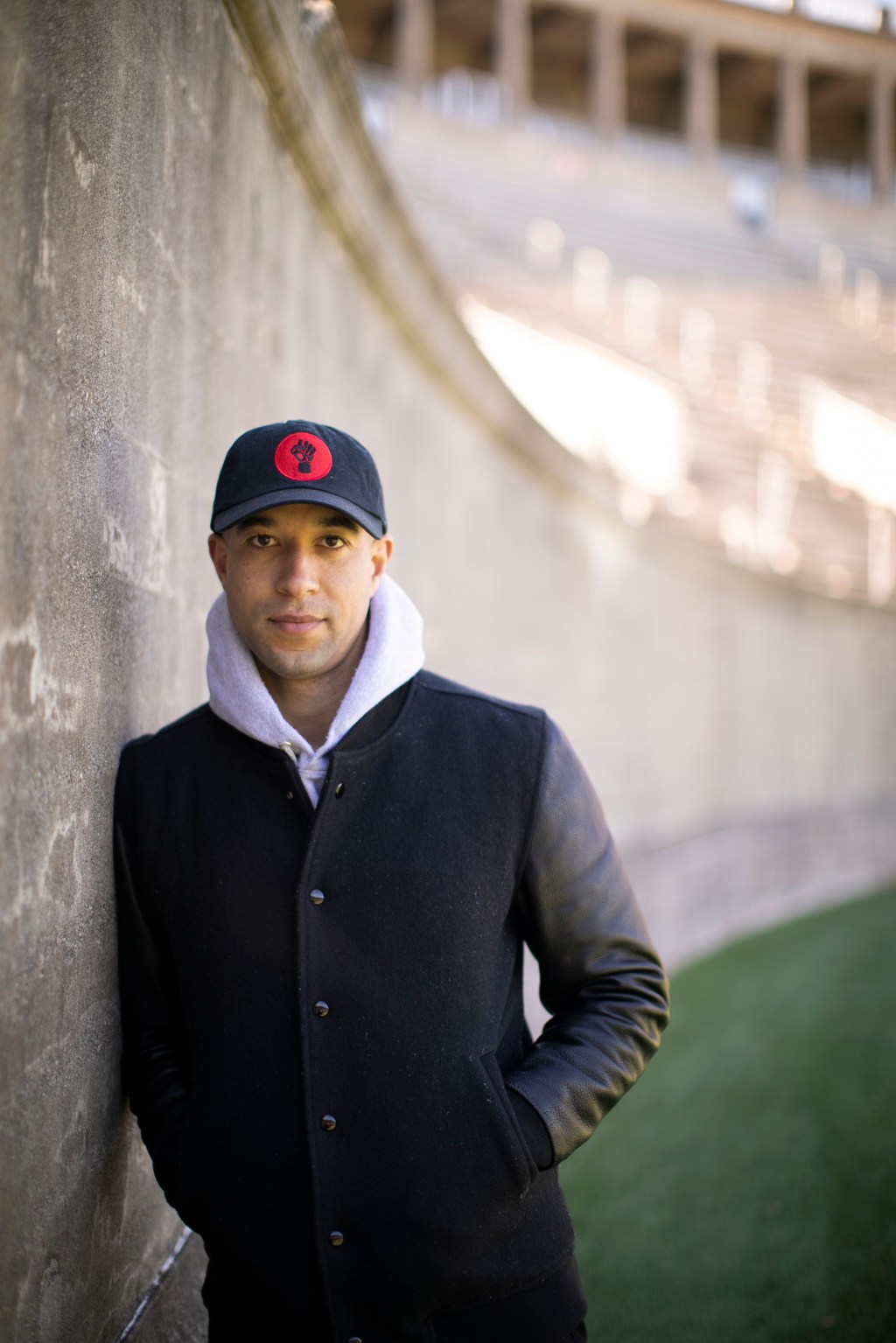
-
Rebuilding Ukraine after ‘great de-developer’
Worse than chemical and nuclear weapons may be the utter and widespread destruction of conventional arms, a Harvard humanitarian expert said.
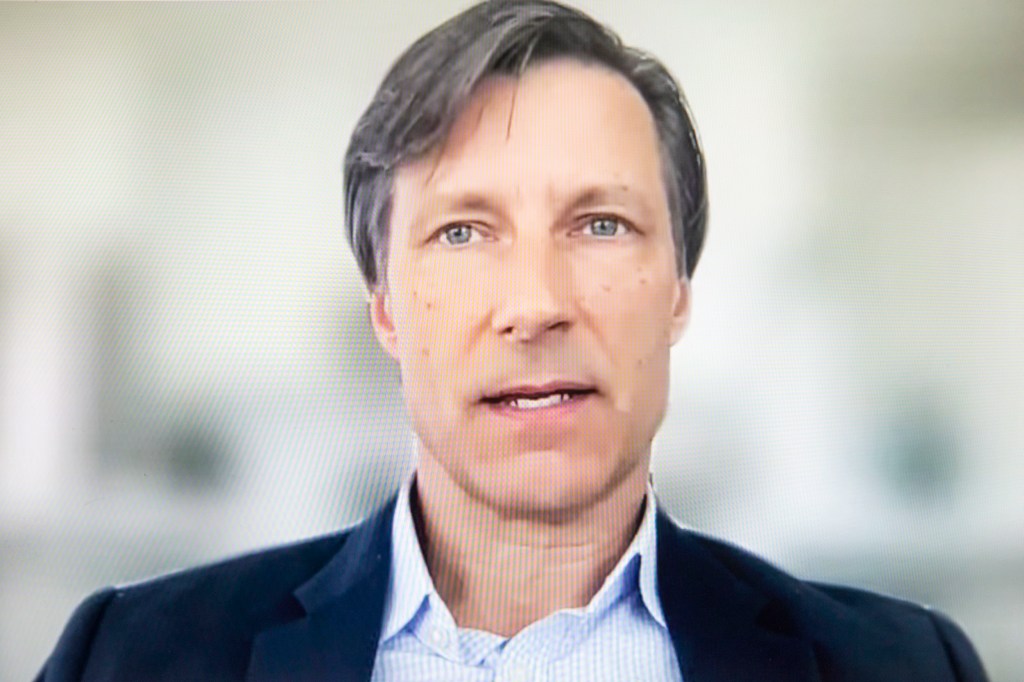
-
Black progress, white anger
Eddie S. Glaude Jr. spoke at the latest virtual JFK Jr. Forum, which is part of the “Reckoning with the Past, Rebuilding the Future” speaker.
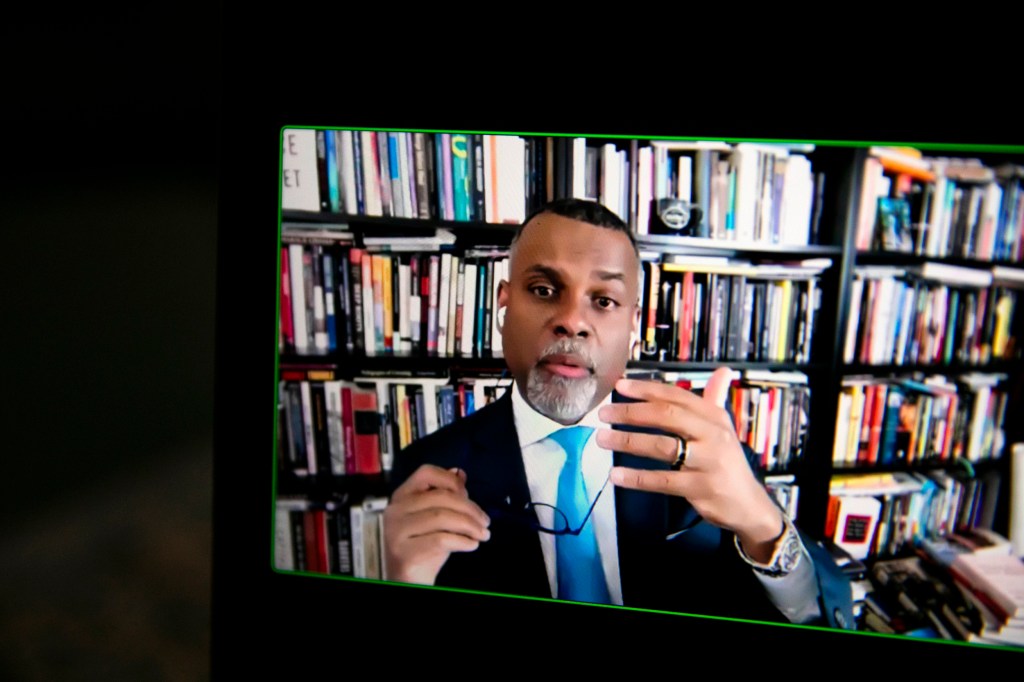
-
Russian actions speak louder than withdrawal promises, analyst says
Amid hopeful signs of progress in the war in Ukraine, a Harvard expert on the region takes an “actions speak louder than words” approach to Russian promises.
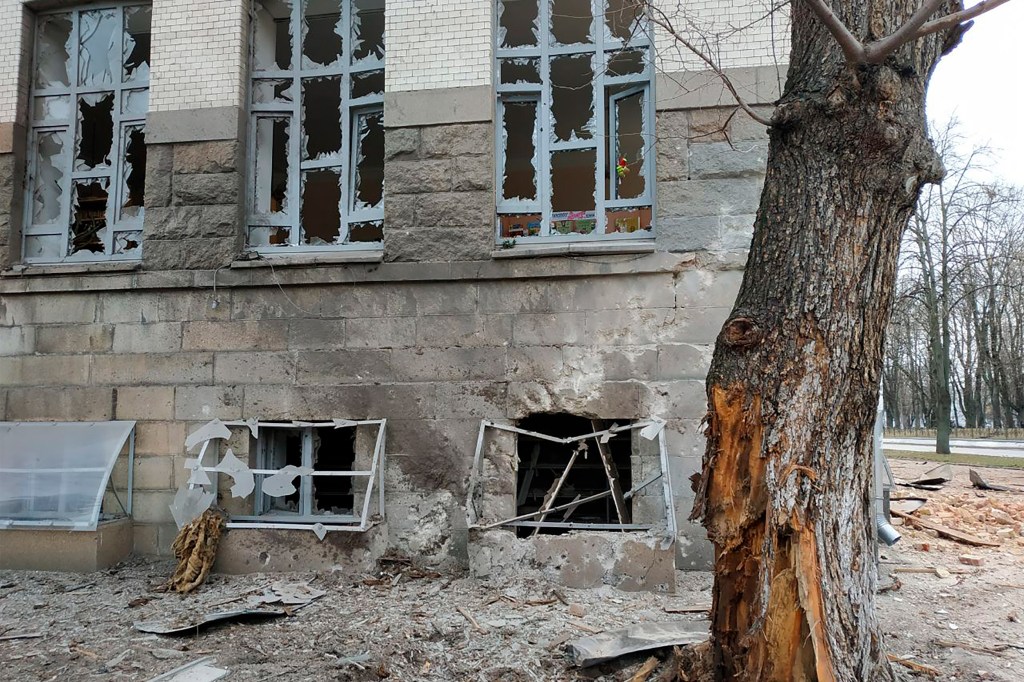
-
Joseph Stiglitz warned of wealth gap in 2012 — and it’s gotten worse
Joseph E. Stiglitz discusses how inequality has affected the country over the last decade during an HKS lecture Monday evening.
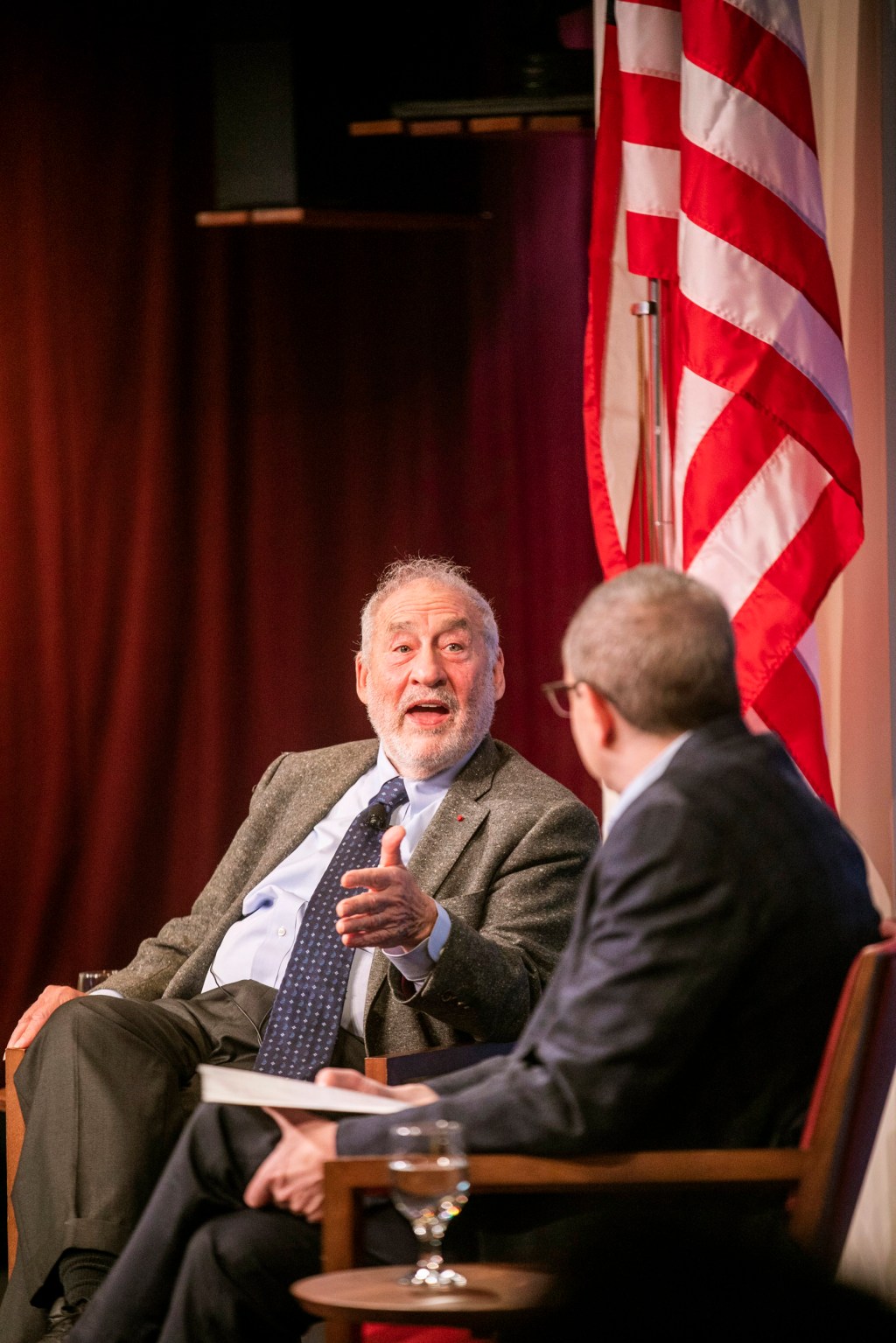
-
Wait — what if Will Smith was just being a man?
A psychologist who works with adolescents reflects on messages boys receive about male aggression as world reacts to violence at the Oscars.
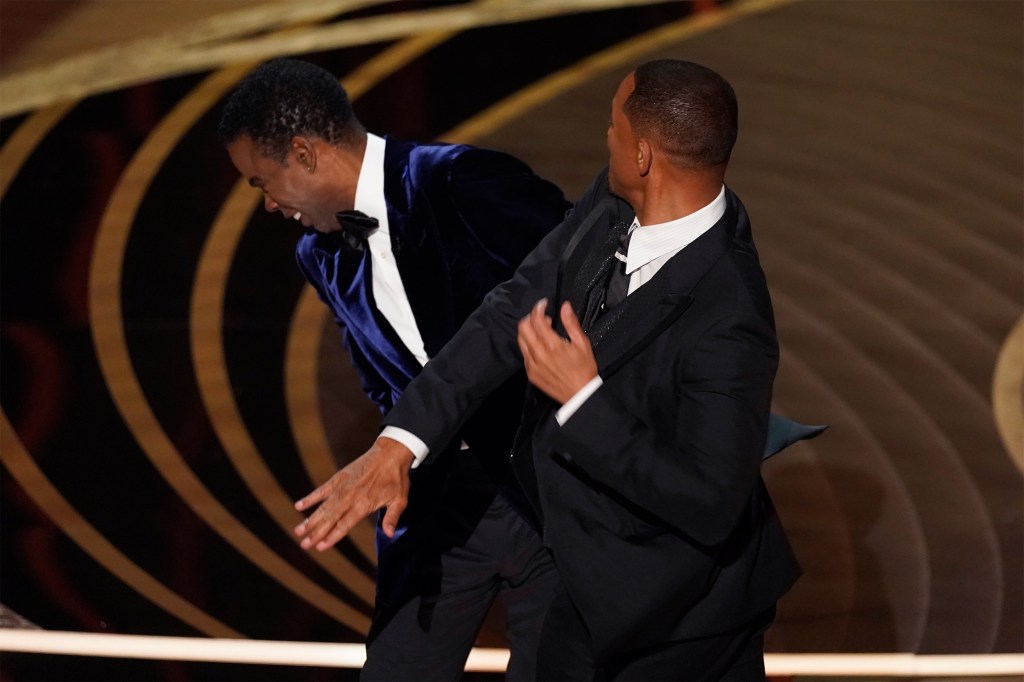
-
Bearing witness to Ukraine war through eyes of refugees
Documentary photographer and alum travels world to raise awareness of plight of those fleeing violence, persecution.
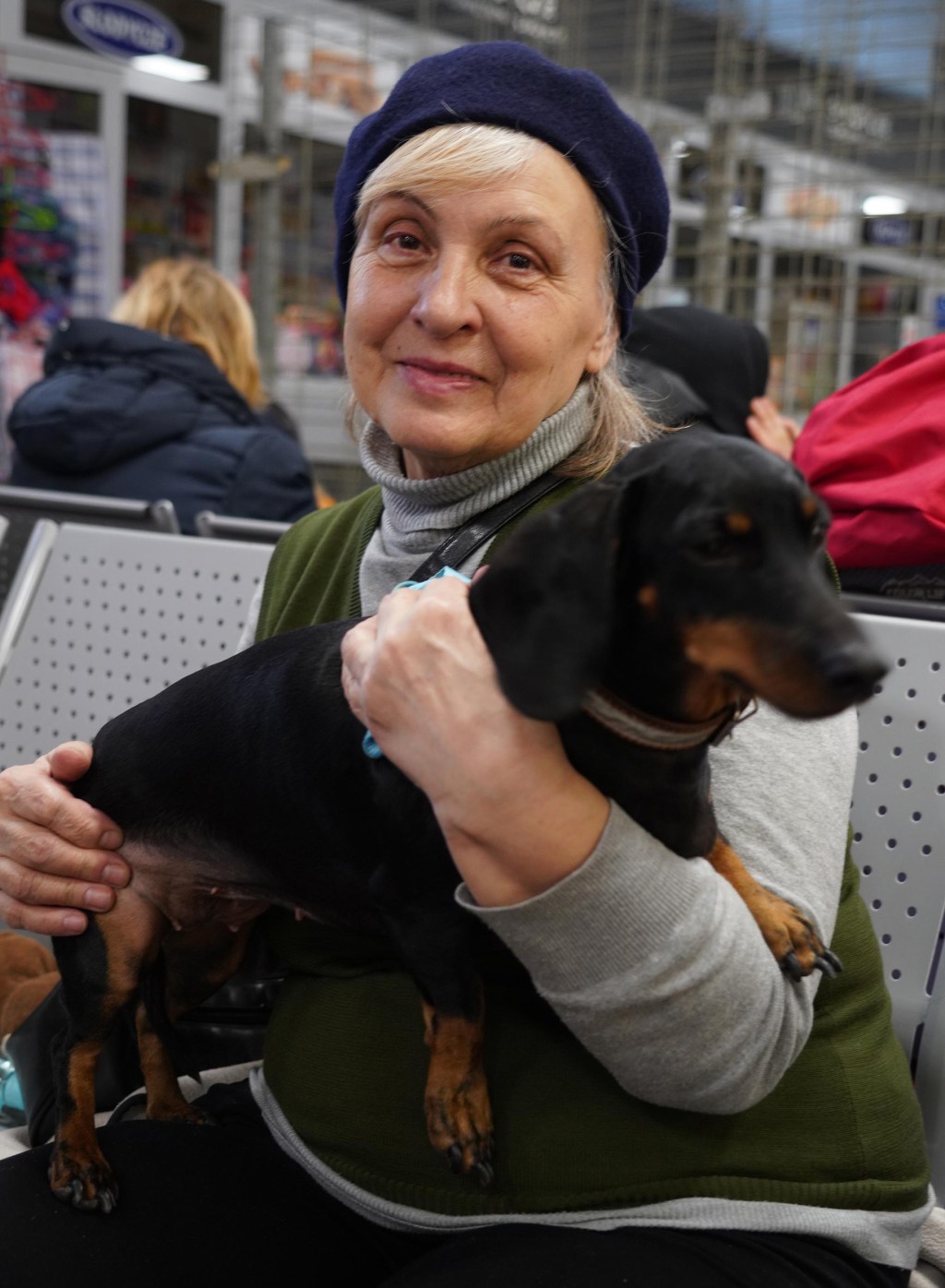
-
How weight-loss industry profits on shame
Excerpted from a new book by Cathy O’Neil, Ph.D. ’99, “The Shame Machine: Who Profits in the New Age of Humiliation.”
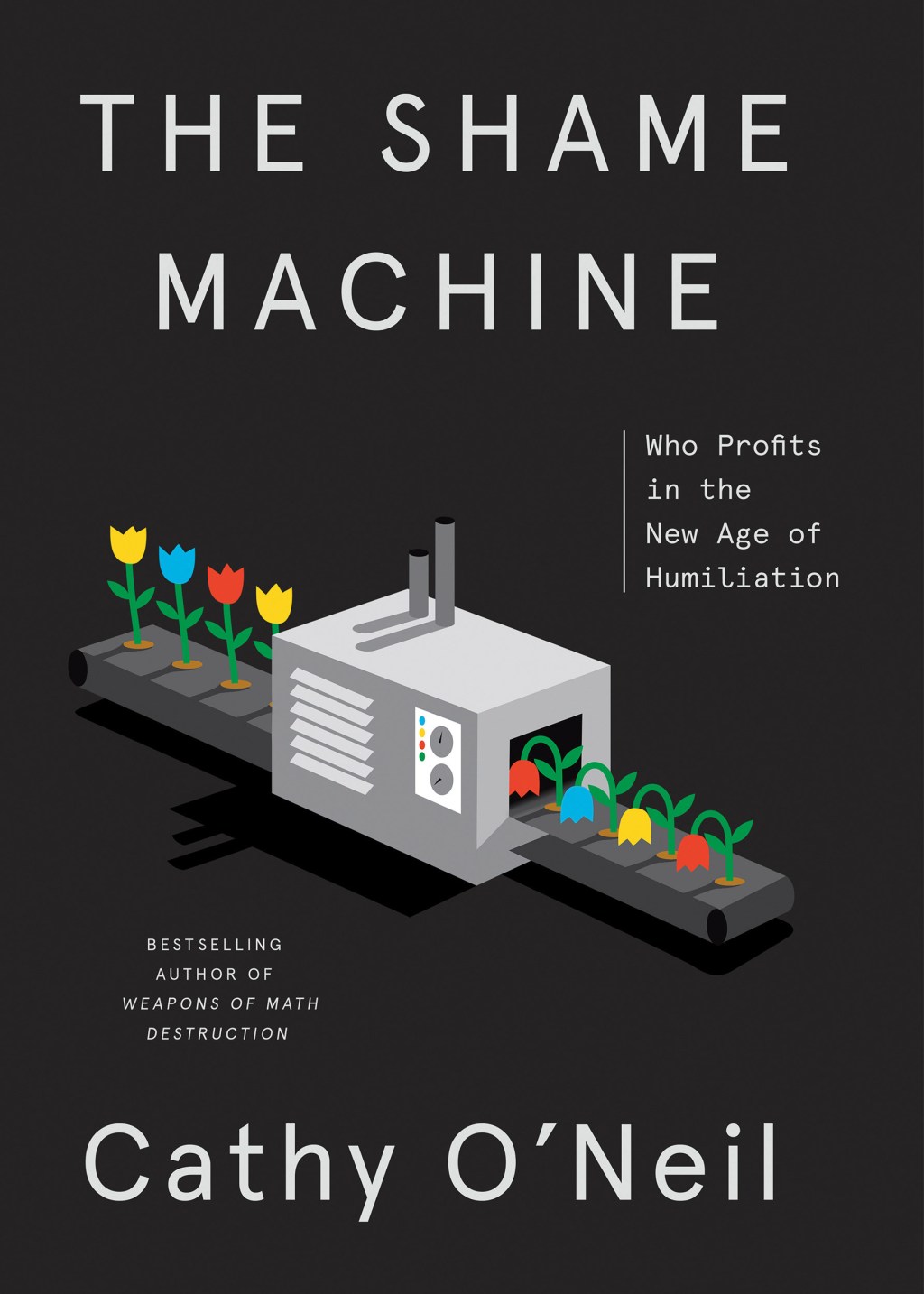
-
Legacy of liberal violence
“Legacy of Violence: A History of the British Empire” by Caroline Elkins continues the story she began in her Pulitzer-winning “Imperial Reckoning.”
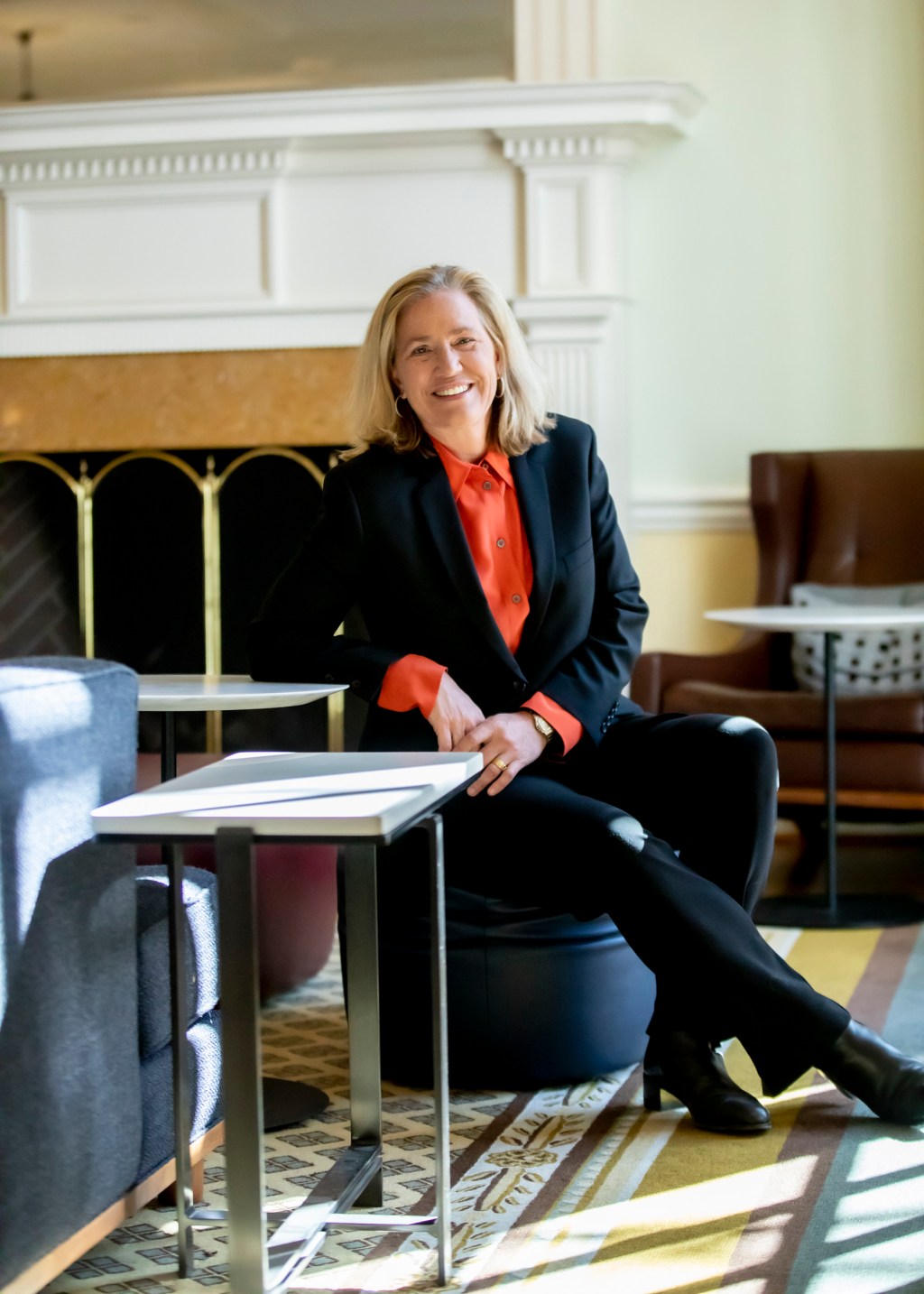
-
Russia’s remaining weapons are horrific and confounding
Matthew Bunn of the Kennedy School discusses the threat and possible fallout of an attack in Ukraine, including the excruciating choices Biden and NATO would face.
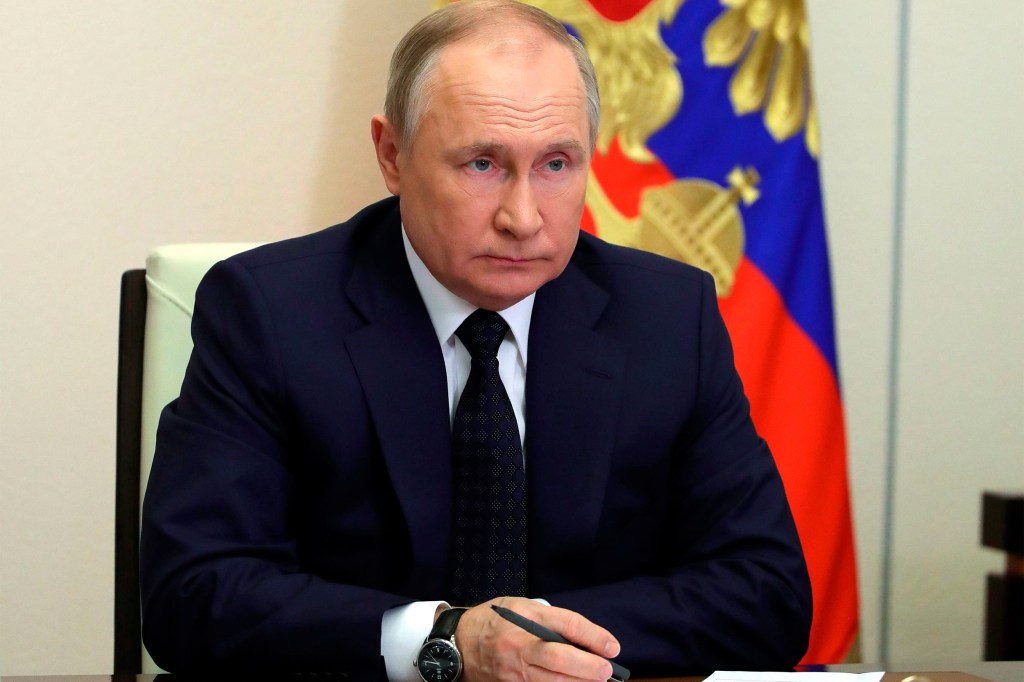
-
Dangers of journalism leave Nieman Fellows grief-stricken
The Nieman Class of 2022 honored Brent Renaud, a 2019 Nieman Fellow who was killed in Ukraine while working on a documentary about the global refugee crisis.
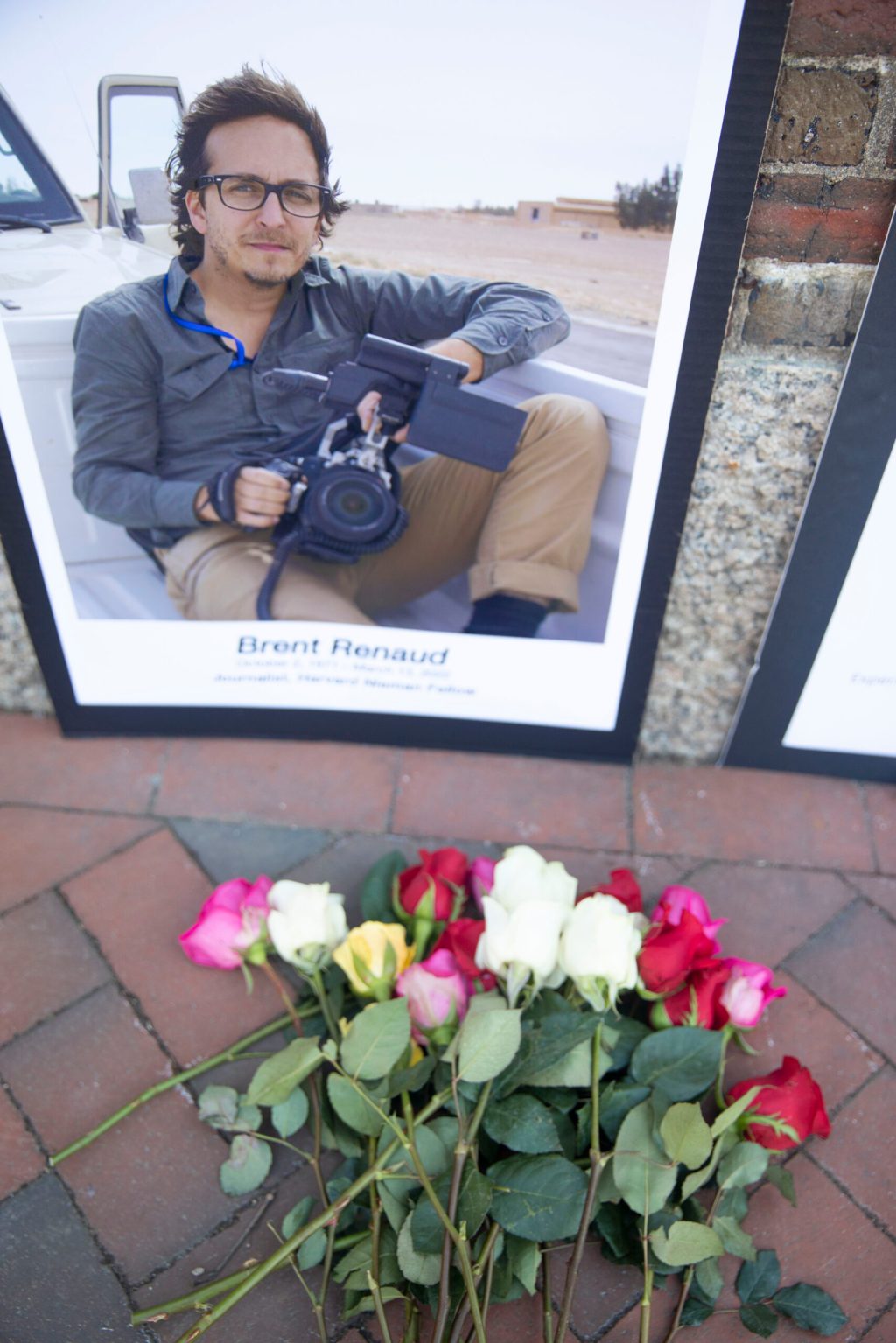
-
Christie takes shots at Trump, Biden
Former N.J. Gov. Chris Christie offered his frank assessments of the political landscape and his friend Donald Trump.
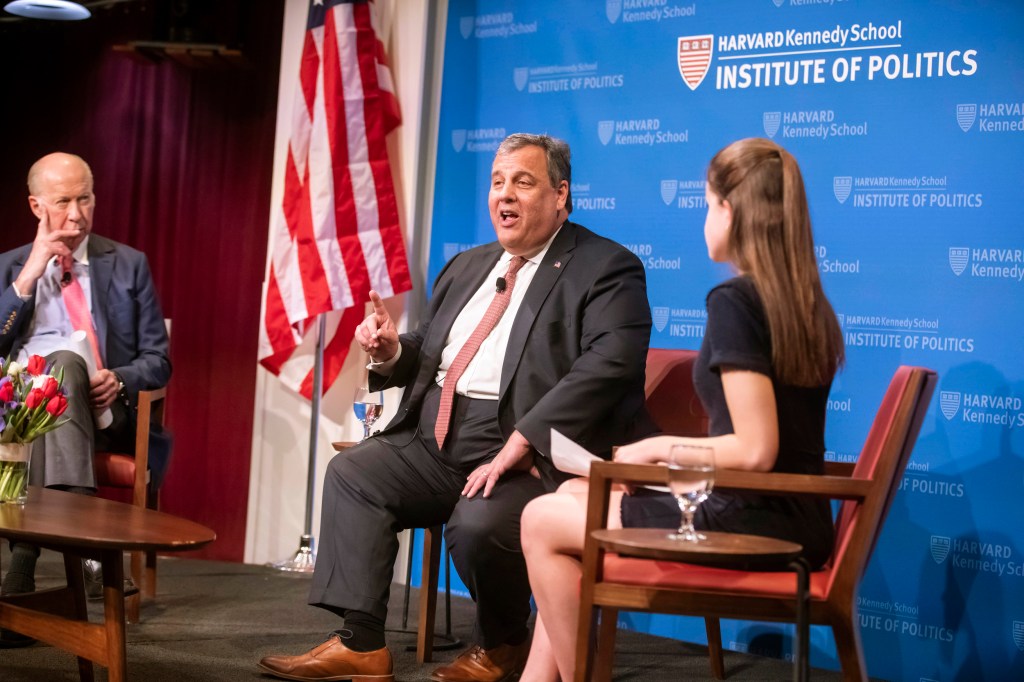
-
Finding exit to war in Ukraine
Panel of Harvard experts will explore best way to negotiate an end to the fighting.
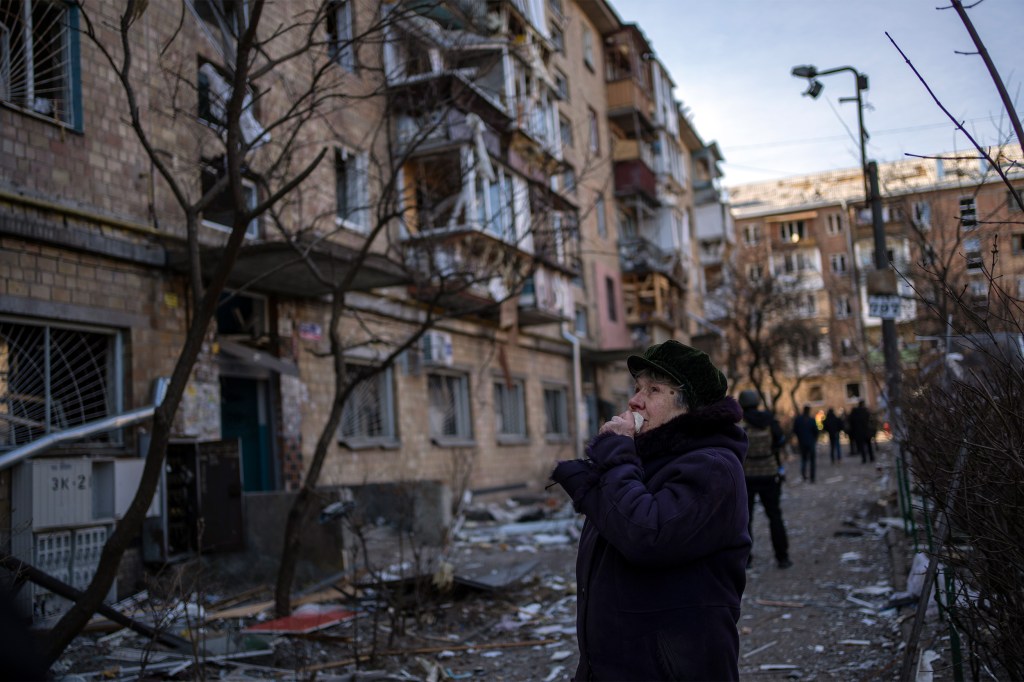
-
Supreme Court nominee’s pioneering background
Nomination of Judge Ketanji Brown Jackson to the Supreme Court shines a light on an overlooked but vital area of the law.
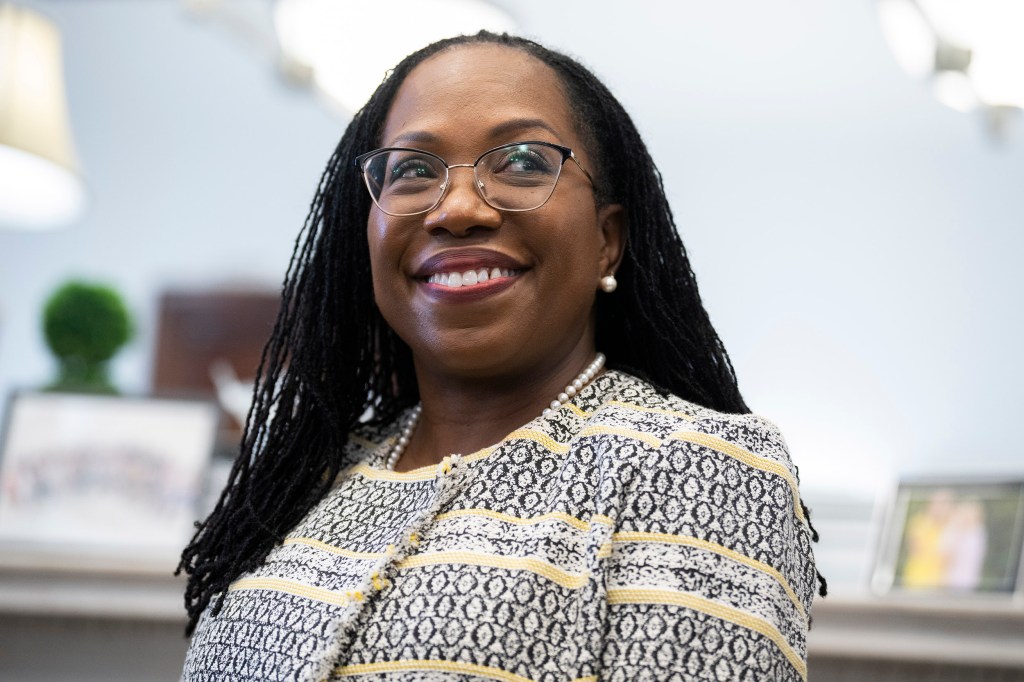
-
Bacow discusses role of higher education institutions in 21st century
Harvard President Larry Bacow spoke at Imperial College London about the future of universities, the war in Ukraine, world crises, free speech.
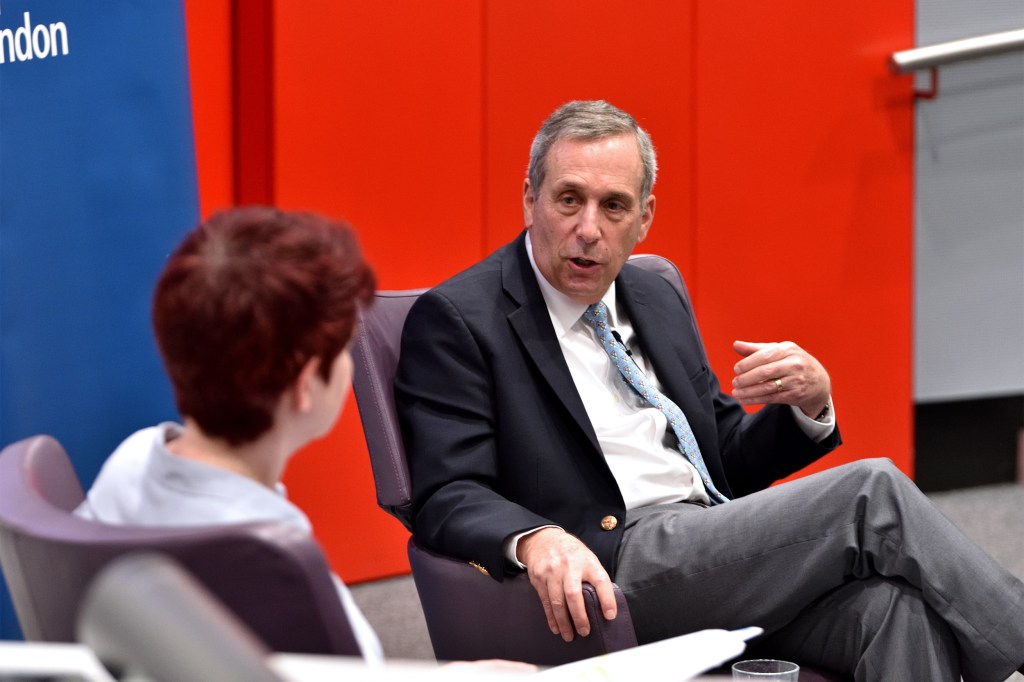
-
Reasons so many teachers joining Great Resignation
Experts at HGSE webinar say districts, schools could offer educators more support to slow departure of teachers.
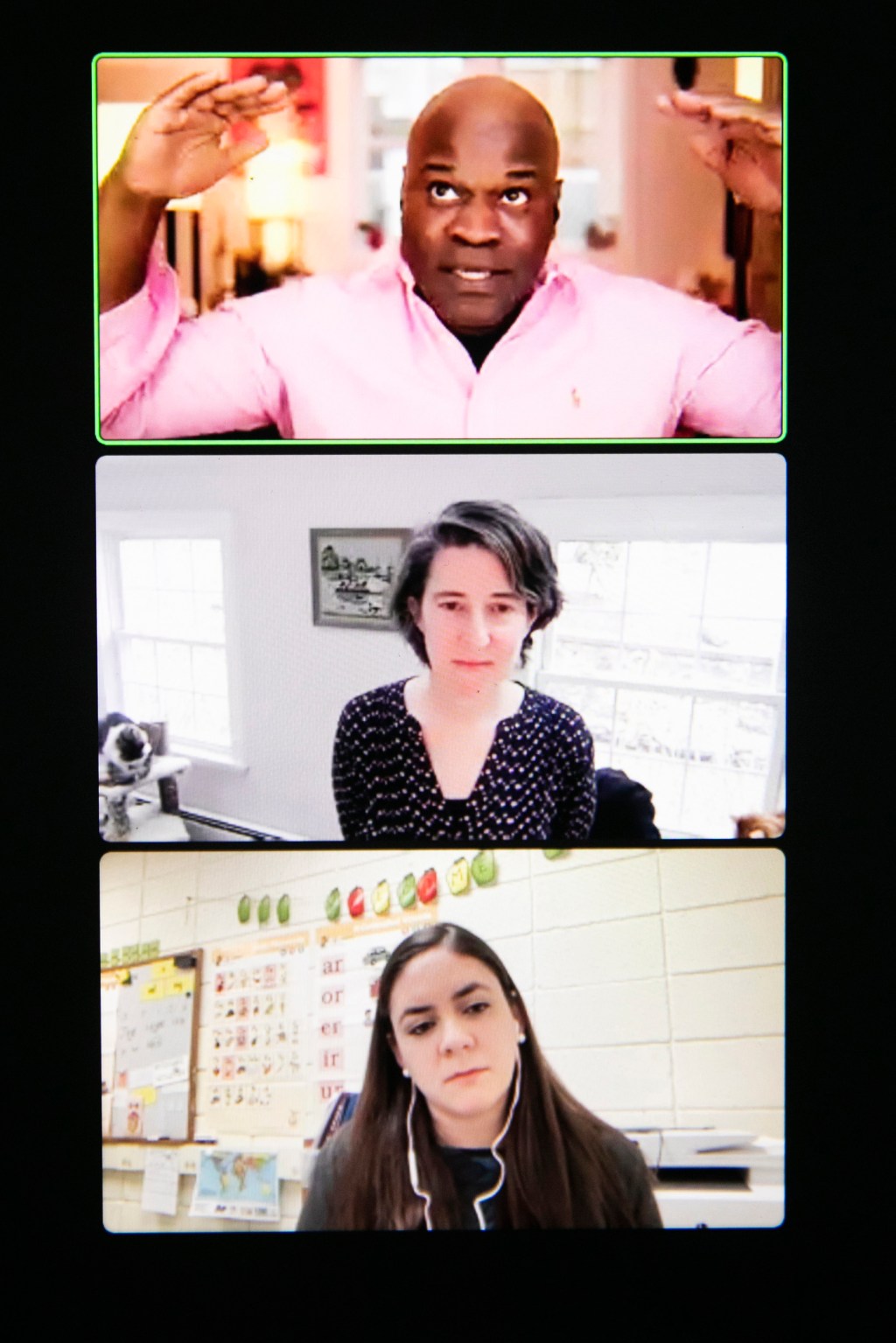
-
How Russians see Russia
Pockets of worry and anger, says ex-Moscow Times journalist, but anti-West sentiment won’t yield easily to Ukraine reality.
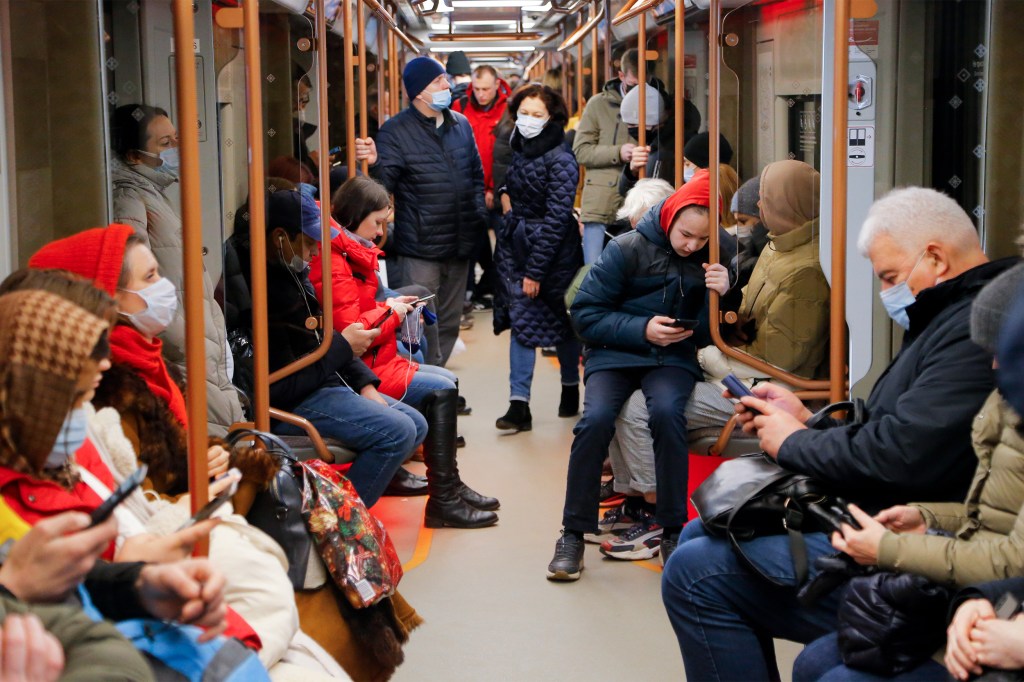
-
What would be signs protests in Russia are making a difference?
Kennedy School expert counts them off: large-scale rallies, staying power of opposition, shift in views of key individuals.
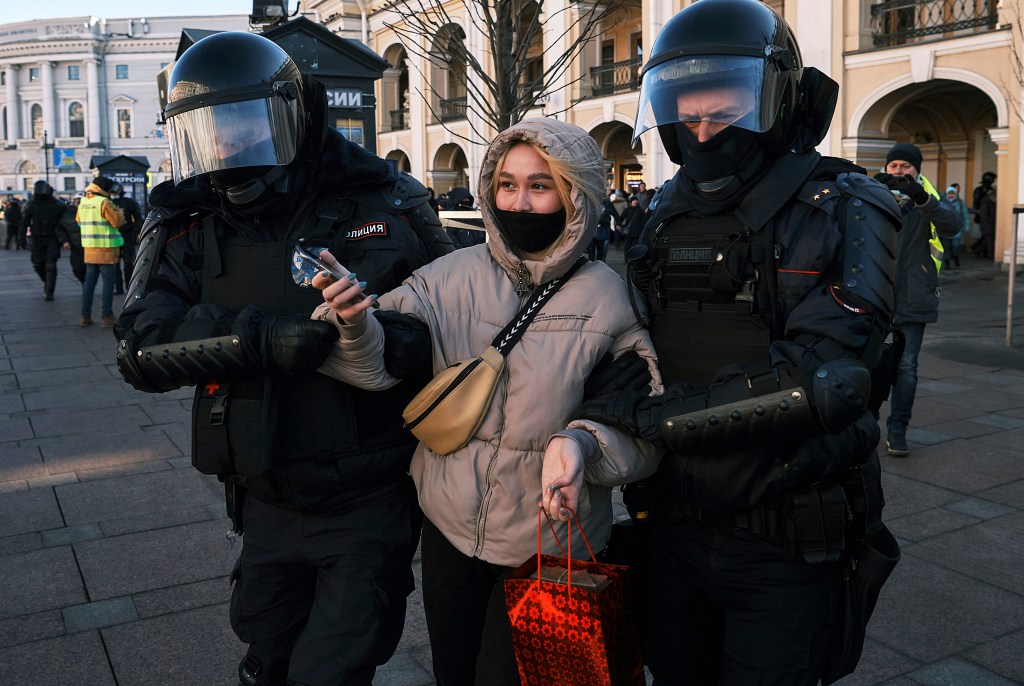
-
Russia’s punishment is a global event
A Harvard panel on the Russia-Ukraine conflict included predictions of dramatic ripple effects as sanctions, corporate action take hold.
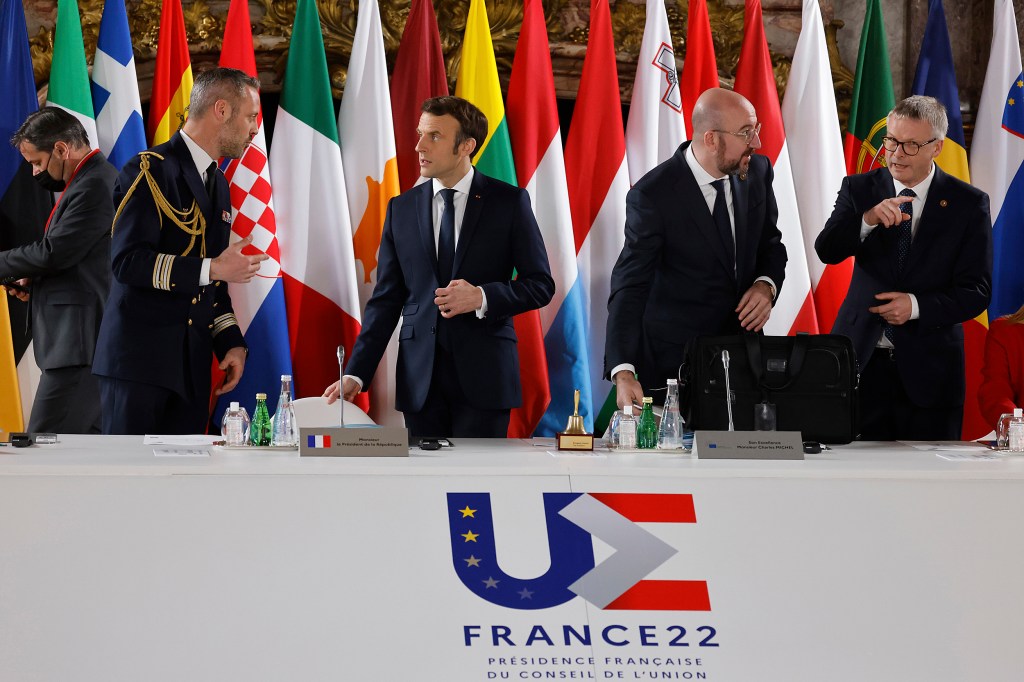
-
Lessons of educator’s life
Brandon Foster hopes his journey from juvenile justice system to pursuit of doctoral degree in education leadership inspires struggling students.
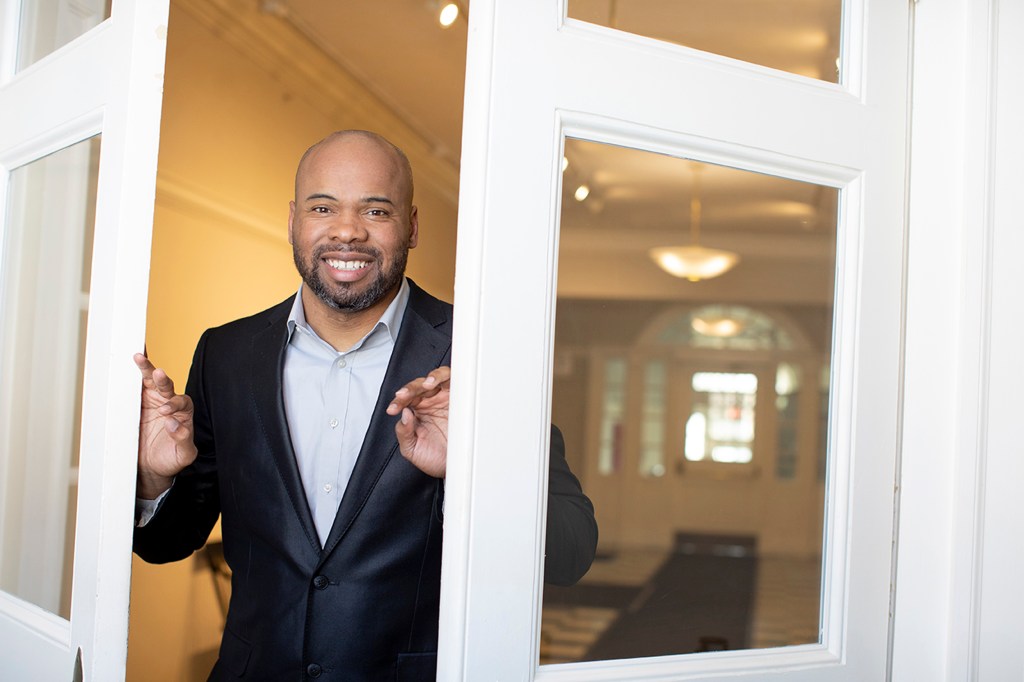
-
Harvard doctor assessing refugees in Poland sees deep psychological wounds
Ukrainians fear for safety of family members as health workers and humanitarian groups provide maternal, pediatric care and treatment for illnesses.
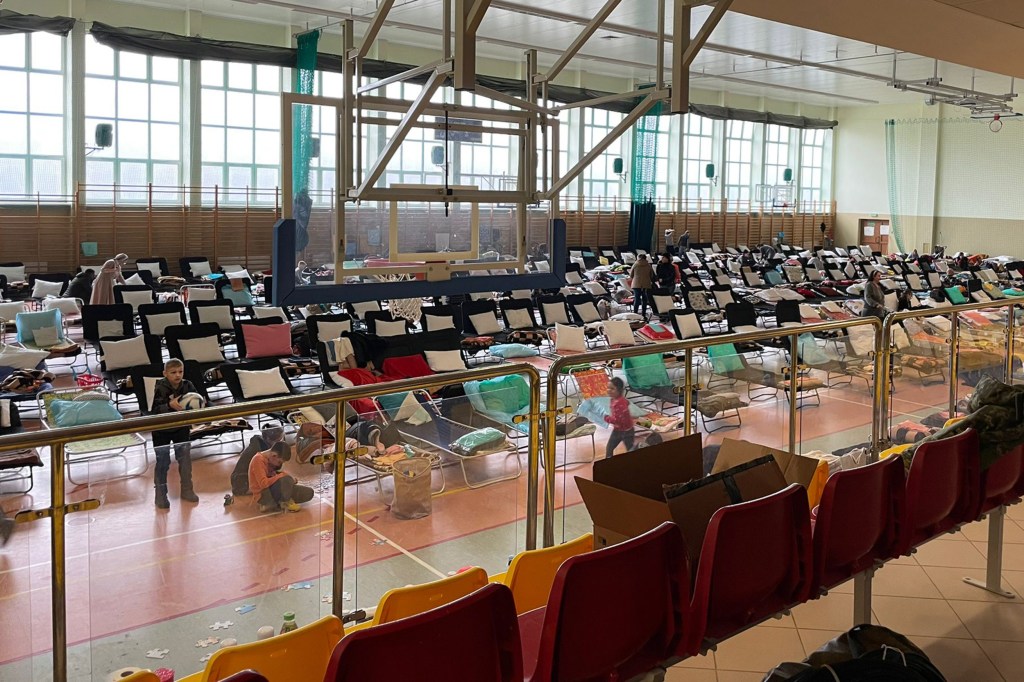
-
Putin’s iron fist vs. Zelensky’s moral clarity
Historian Nancy Koehn, author of “Forged in Crisis,” compares wartime presidents and broader messages their leadership styles send.
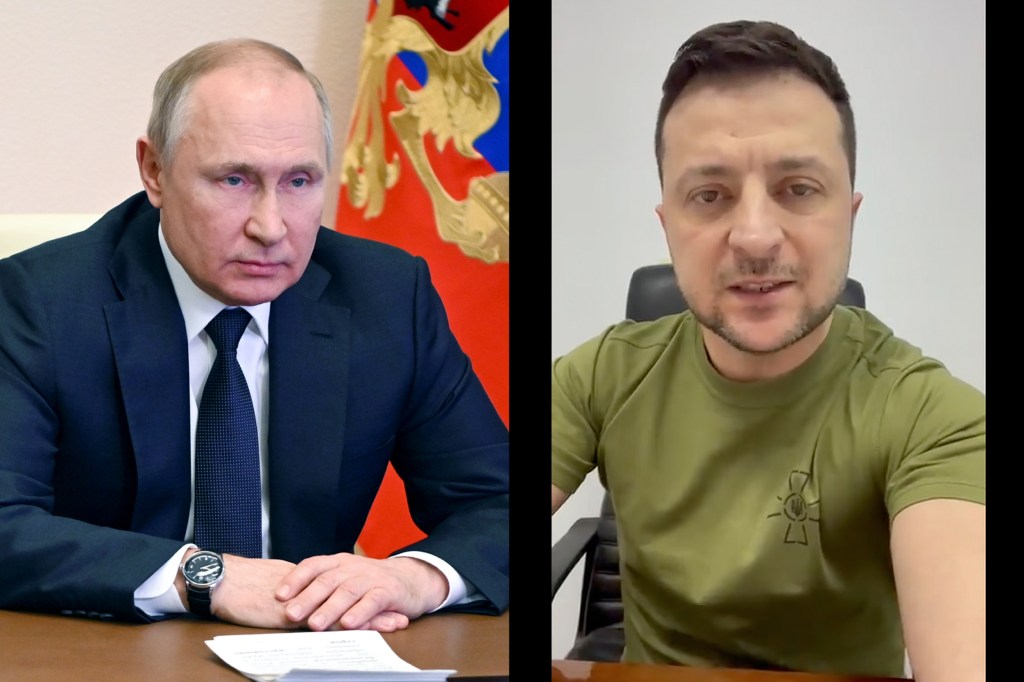
-
Russian attack, takeover of Ukraine plant ramps up nuclear threat
Former U.S. intelligence officer and nuclear counterterrorism expert provides an intelligence view of Russia’s attack and seizure of Ukraine’s largest nuclear power plant last Friday.

-
Will China’s support for Russia hold as condemnation over Ukraine grows?
In talk Thursday, HKS China expert Anthony Saich and Alexandra Vacroux, executive director of the Davis Center for Russian and East Asian Studies, assess the ways Russia’s war on Ukraine could shape China’s ambitions for Taiwan.
